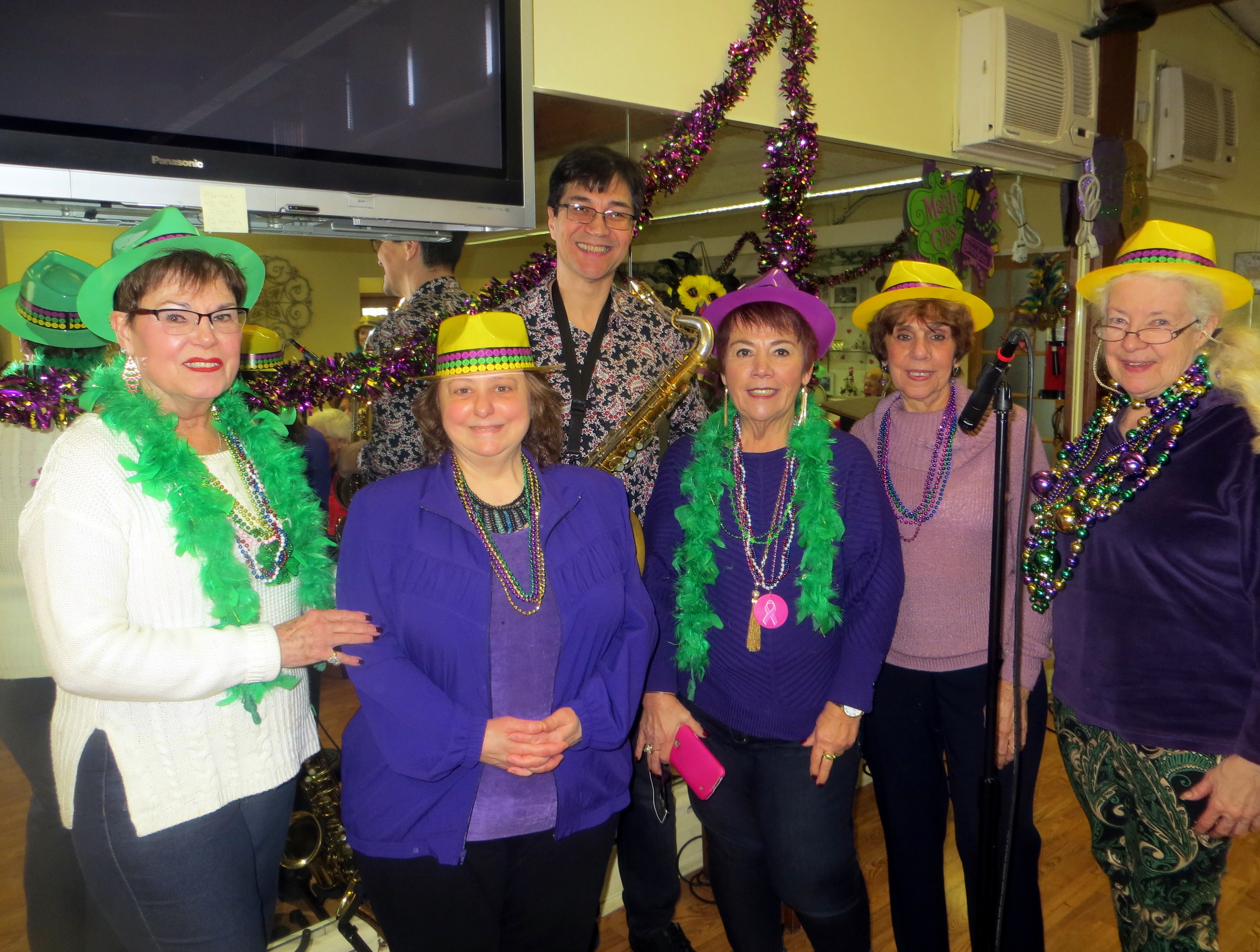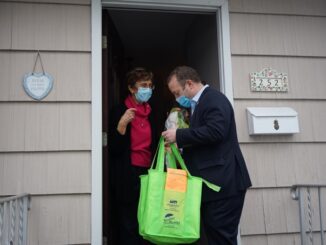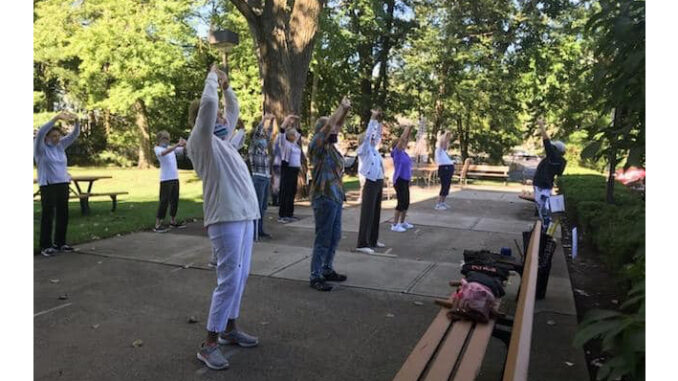
WESTWOOD—The borough is working to see how it can fill gaps in service after the board of trustees of the nonprofit Thomas J. Riley Senior Center at Westwood House announced that the center is closing this fall — permanently.
The multi-purpose center —established in 1981 in the heart of Westwood for active, independent seniors 60 and older and persons with disabilities — has long invited users from Bergen and Rockland counties to come for morning exercise and stay for a hot nutritious lunch.
It’s long offered “many programs designed to nourish the body, mind, and soul,” including a nutrition program, congregate hot lunch program, and instructor-guided chair yoga, tai chi, and line dance classes.
It hosts a popular activities program, bringing residents of its parent HUD-subsidized facility (Westwood Senior Housing Corp. owns the building) bingo games, video-guided exercise classes, painting, arts and crafts, computer sessions, and holiday events.
Westwood House’s executive director, Valeria Mary Hartman, told Pascack Press on Sept. 14 that Thomas J. Riley Senior Center will close on Sept. 30. Its office will remain open until Oct. 15.
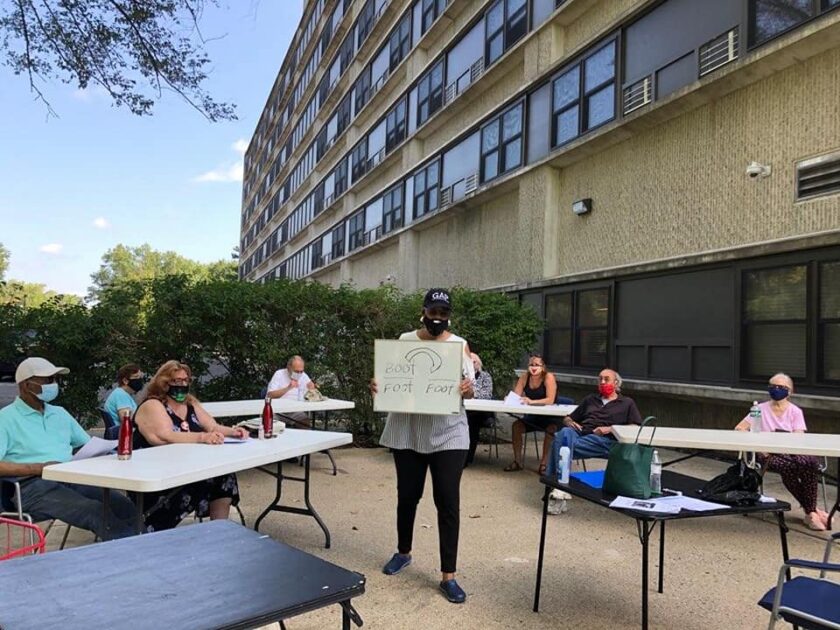
The senior center space will be devoted to low-income Westwood House residents, many of whom are of advanced age and some infirmity; a program specialist will be brought in to develop offerings that can be paid for or subsidized out of the Westwood House budget.
A notice at the center explains the decision was over “continued financial uncertainty, the impacts of Covid on participation and operations, and other factors beyond our control.”
The trustees wrote that they pinned hopes on the borough Recreation Department coming through with offerings for this population at the Community Center, 55 Jefferson Ave.
They also speculated that Meals on Wheels North Jersey, which also operates out of Westwood House, “will be able to serve those homebound and otherwise vulnerable seniors who participated in the nutrition program.”
Hasmig Mekjian, who has taught tai chi at the center for decades, told Pascack Press she is “desperate, desperate, desperate” to find space to continue classes for her students, many of whom find the work therapeutic.
“I’m really calling anyone I can to get a place; I say, what can you help me with? Some of these people have been with me for 20 years.”
She said she met with students last week, who asked her about next steps. “I don’t know what to tell them.”
Mayor Ray Arroyo told Pascack Press on Sept. 14, “The borough intends to evaluate and maintain senior programming. Councilman Chris Montana, liaison to the Senior Advisory Board, along with the Borough’s Personnel Committee, has recommended the creation of a senior services coordinator position precisely for this reason.”
He said the coordinator will assess programming offered by local NGO and borough entities to prioritize needs. “While the Riley Center may be gone, the Westwood residents it serviced are still with us. And the governing body is committed to them.”
Montana told us on Sept. 15, “We are currently communicating with the team at the Thomas J. Riley Senior Center to gather information on each program they run. The information we requested includes schedules, Westwood resident and non-Westwood resident participation numbers, instructors, and cost.”
He said, “Once this information is obtained, we will have a better understanding of what existing programs offered by our recreation department we can roll the Riley Center programs into.”
Montana said, “As for Riley Center programs that are not currently offered by our Recreation Department, we will review resident participation numbers, cost, and space at the Community Center to determine what is feasible.”
He added, “I anticipate the borough will have the senior services coordinator position filled in October and will have that individual review the information and data in conjunction with our recreation director and borough administrator.”
Montana said key factors to include in the analysis are incremental/new program costs, “how these costs fit into the confines of our current and future budget framework,” program locations, and transportation.
“I would expect this process to be expedited,” he said.
Meals on Wheels North Jersey’s executive director, Jeanne Martin, told Pascack Press on Sept. 14, “We’ve gotten some phone calls from people looking for meals that they used to get at the senior center, about four. If we need to pick that up, we can add those people to our rolls.”
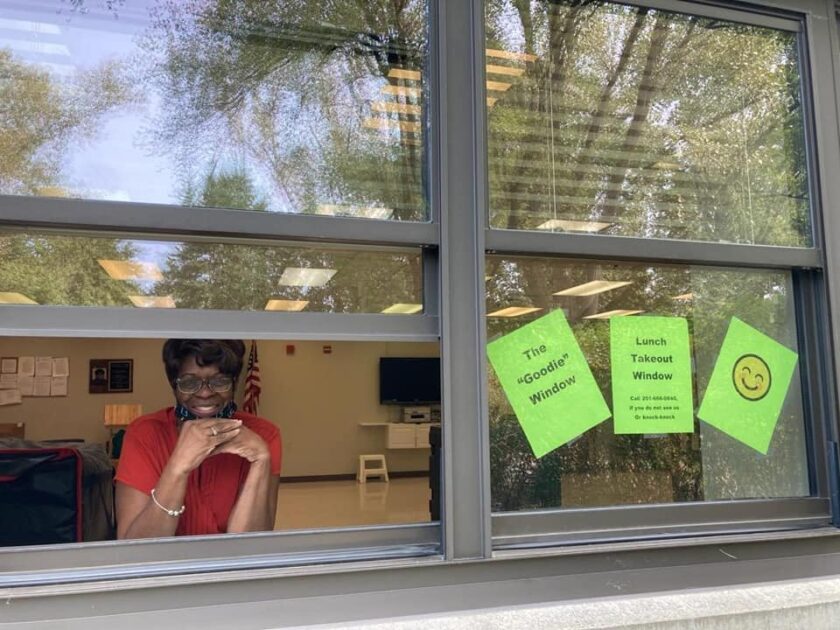
She added, “I think it’s going to be hard. We were just starting to get back after Covid and we were just starting doing the exercise programs and the lunches again. People were so happy to be together again. It’s going to be a loss for some of these people. Hopefully things will shake out and things will be better.”
Lisa Bontemps, program manager of Westwood For All Ages, told Pascack Press on Sept. 14, “Obviously it’s a big loss to the community. We very much enjoyed collaborating with the dedicated staff who worked very hard to serve the older residents of Westwood and surrounding communities.”
She said, “We also absolutely understand that it was a difficult decision that was not taken lightly. We do hope there will be a renewed center in the future and we will certainly make available any resources that we have in the way of programming or promotion to that effort should it be undertaken.”
A ‘horrible’ funding picture
The Riley senior center is supported in part by Community Development Block Grant, Title III and USDA funds. It primarily depends on the receipt of tax-deductible private and corporate contributions and fundraising activities to meet its operating expenses.
Recently emerged from the Covid shutdown, the center lost its annual $25,000 CDBG infusion — due to a change in permitted use of such funds — and in August lost its latest executive director and fundraiser, Marisa Tarateta, who is a marriage and family therapist.
According to Hartman, existing grants cover less than half of the expenses on an estimated $190,000 budget.
She said that grants from local banks had dried up. “Now they only want to do Covid-relief grants.”
And she said of some older benefactors, “Those people are not around anymore… It just reached a point where the straw has broken the camel’s back.”
The suggested donation for the activity program was $2 for the day (Westwood House residents $1) and the suggested donation for the lunch program was $3.50 for a complete hot meal.
Hartman said, “We weren’t getting a lot of our own residents using these programs. A lot of [the demand] was from outside of the building. That was another part of the decision: how much it would affect the people who lived in our building.”
She said, “We don’t want to discount any other seniors who would come here, but they do have the advantage and the capability of going to the rec center. And a lot of our residents can’t.”
She said she did not readily have figures on program participation. “If there were 50 people in a class, maybe four of them were from the building. It was a low percentage.” The lunch program served 35-50 diners.
Hartman said, “Times have changed and it’s extremely difficult to fundraise. It’s extremely difficult in this environment, with Covid. Its just been horrible.”
With regard to the borough, she said, “I know the town is working on trying to pick up some of the programming, but how soon that’s going to happen or what they’re going to pick up we have no idea.”
She said, “This is not the first time we’ve been subject to financial difficulties. I would say for the past 20-plus years we’d sometimes been very close to having to close, and having to do some traumatic fundraising.”
She said it was difficult attracting and retaining someone well qualified to run the center on modest pay and no benefits.
“We never got that endowment; we never got the corporations stepping in. That just never materialized, and that’s what you need — you need someone to leave a large endowment, so you don’t have to worry about where we’re going to meet these expenses every year,” she said.
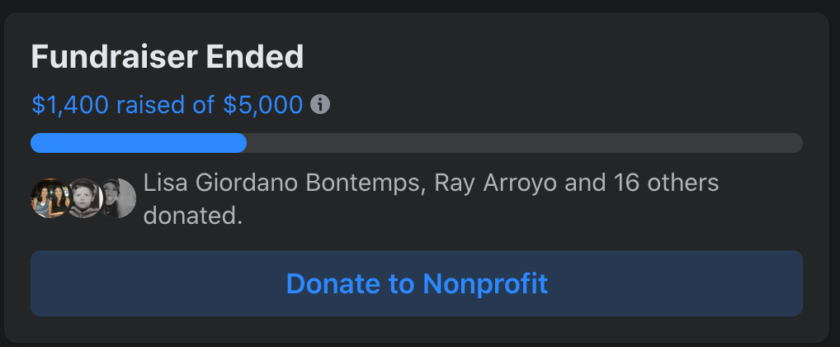
Hartman said, “We’re one of the few private senior centers. Others are run by a municipality or county; they don’t have the same challenges. We had our own caterer, our own consultants, our own staff, because we wanted to have a higher level of service, a better food program; we wanted to offer different type of classes, but the cost was having to raise so much money every year and find a way to pay people.”
She said “The past six to 10 years have been the most difficult, but for the past 20 we’ve struggled.”
Guidestar.org, which connects donors and grantmakers to non-profit organizations, has a self-reporting area for the center that reads, “The organization is not receiving enough funds to operate each year without a deficit. One of the government grant applications was rejected, making the requirement for fundraising to be $42,000 annually this coming year.”
End of an era
The center notes it opened on April 1, 1981 “through the extraordinary efforts and vision of Mrs. Margaret Cook, then vice president of the Westwood Senior Housing Corp., and several other members of that corporation’s Board of Trustees.”
Its purpose was to be “a support system for both seniors and the increasing number of adult children caring for aging parents.”
It provided five basic services:
- Information, referral and advocacy services.
- Ongoing recreational services and social opportunities to foster friendship and companionship.
- Education aimed at personal growth, independence and improved quality of life.
- Health screening and educational programs in conjunction with local health agencies.
- A congregate, five-day-per week senior lunch program that provides a hot, nutritionally balanced midday meal.


